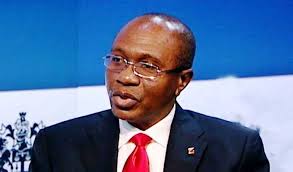The International Monetary Fund (IMF) has advised the Central Bank of Nigeria (CBN) to ensure prudent management of Nigeria’s external reserves as a strategic monetary policy option to guard against external shocks on the nation’s economy.
The Head, Emerging Economies Regional Studies Division at the IMF, Anna Ilyina, who gave this advice during the unveiling of the Global Financial Stability Report, at the ongoing IMF/World Bank Annual Meetings in Bali, Indonesia, said that the need for caution became imperative as a result of interest rate normalisation in the United States and other advanced economies globally
Ilyina projected the likelihood of further rate spike in the US and other developed economies such that outflows from Nigeria and other emerging economies could increase in the months ahead.
According to her, the concerns for cautious management of foreign reserves by emerging economies is based on the fact that monetary policy normalisation in advanced economies is still at the early stage it is expected that the global external conditions and external balance conditions may remain challenging going forward.
Ilyina projected that the development would likely result in protracted period of mobility of capital, adding that in such type of situation, it is advisable that foreign exchange reserves should be used judiciously.
The banking expert pointed out that Nigeria and other emerging market nations had been under pressure since April due to a “combination of factors.”
She expatiated: “It started with sharp appreciation in US dollar in the context of rising US interest rates and of course emerging markets are very sensitive to changes to changes in external balancing.
“So, that affected emerging markets asset class. But those countries that have stronger economic fundamentals and policy frameworks and less external financing have been really less affected.
“In the case of Nigeria, there is one important driver that always affects its economic condition and that is oil. Nigeria being an oil exporter is always very sensitive to changes in oil prices.
“Allowing exchange rate to act as an external measure is healthy to adjust to external environment. Of course, forex intervention might make sense in certain circumstances. “But then, one has to consider the growth in fundamentals, the level of reserves and other policy tools that might be more appropriate in country-specific circumstances.
“Another thing that I want to mention is that given that we are still at the early stage of monetary policy normalisation in advanced economies. So, one can expect global external conditions and external balance conditions to remain challenging going forward”, Ilyina added.
Nigeria’s external reserves dropped to $43.610 billion on Tuesday, against its peak level of $47.8 billion recorded at the end of June
It would be recalled that the U.S Federal Reserve raised interest rate at the end of its Federal Open Market Committee (FOMC) meeting held last week, raising concerns of increased turmoil in emerging markets (EMs).






